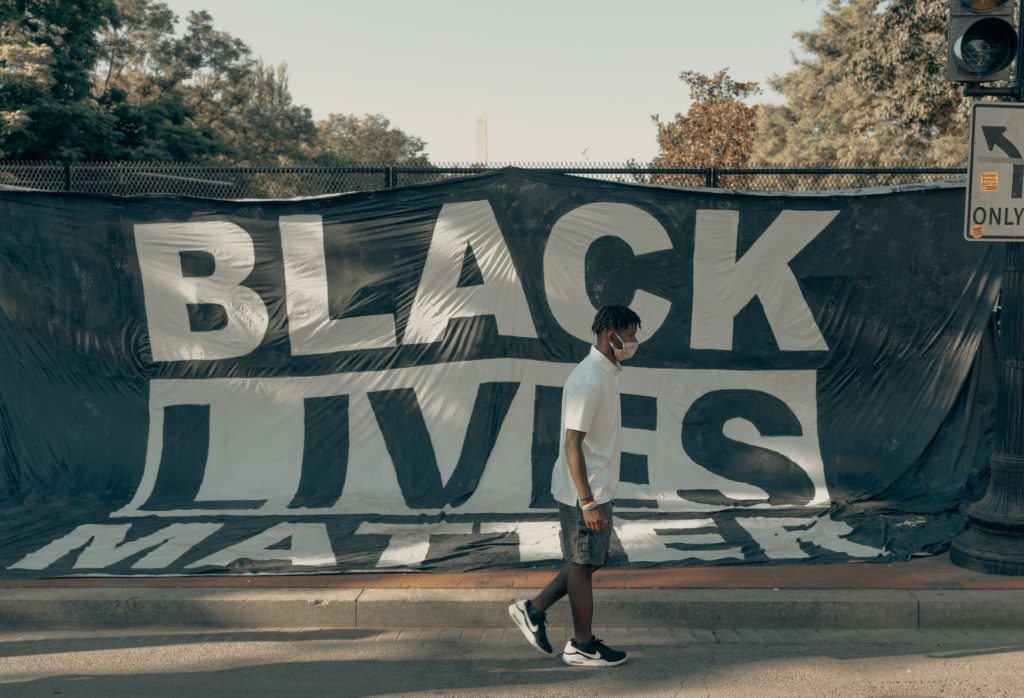Resources for Creating Equality in the Classrooms and the World

As a teacher dedicated to educational equity, I’ve become painfully aware how much I still have to learn about racism in our country, and how I must actively work to prevent racism from ever rearing its ugly head in my classroom.
One of my most important discoveries is that even the most well-meaning teachers can unintentionally perpetuate bias in the words they use, the way they interact with students, even the readings they assign.
To that end, I’ve begun educating myself on the ways racial and other forms of bias can subtly show up in educational settings, and concrete steps teachers can take to prevent this. Below, I’ve shared several educational resources that I’ve found helpful and have helped me grow as both a teacher and person, as well as other writings, people, and organizations that I recommend.
RESOURCES: Books and Articles to Read
Me and White Supremacy: Combat Racism, Change the World, and Become a Good Ancestor
Layla Saad
From Amazon: “Updated and expanded from the original workbook (downloaded by nearly 100,000 people), this critical text helps you take the work deeper by adding more historical and cultural contexts, sharing moving stories and anecdotes, and including expanded definitions, examples, and further resources, giving you the language to understand racism, and to dismantle your own biases, whether you are using the book on your own, with a book club, or looking to start family activism in your own home.”
This book will walk you step-by-step through the work of examining:
- Examining your own white privilege
- What allyship really means
- Anti-blackness, racial stereotypes, and cultural appropriation
- Changing the way that you view and respond to race
- How to continue the work to create social change”
After George Floyd’s Killing, What Academics Can Do, The Chronicle of Higher Education
“We must harness the tools at hand. Those of us who teach the law or medicine, let us do so with joy, the sharpest of insight, and the highest of ethics. Those of us who teach in the sciences, let us keep our sights high, and never forget that each small step we take in placing rigorously tested evidence before the world moves us all. If we are social scientists, let us document, discover, develop policies, and help test them.
Let us each use the knowledge we have gained to destroy the mythologies and half-truths that make injustice seem palatable, and to make it harder for charlatans to mislead individuals and obscure reality” (Starr, 2020).
Black Women and Social Justice Education: Legacies and Lessons
Stephanie Y. Evans, Andrea D. Domingue, and Tania D. Mitchell
“Black Women and Social Justice Education builds on the legacies of Black women who articulate educational values that investigate identity and demand moral accountability in ways that directly upset and undermine systems of inequality. This effort simultaneously deconstructs systems of oppression and constructs liberatory pedagogical principals. These principles should be taught, studied, and institutionalized” (Evans, Domingue, & Mitchell, 2019, p. 2).
Teaching Community: A Pedagogy of Hope
bell hooks
“To build community requires vigilant awareness of the work we must continually do to undermine all the socialization that leads us to behave in ways that perpetuate domination. A body of critical theory is now available that explains all the workings of white-supremacist thought and racism. But explanations alone do not bring us to the practice of beloved community.
When we take the theory, the explanations, and apply them concretely to our daily lives, to our experiences, we further and deepen the practice of anti-racist transformation” (hooks, 2003, p.36).
We Want to Do More Than Survive: Abolitionist Teaching and the Pursuit of Educational Freedom
Bettina Lova
“When you understand how hard it is to fight for educational justice, you know that there are no shortcuts and no gimmicks; you know this to be true deep in your soul, which brings both frustration and determination. Educational justice is going to take people power, driven by the spirit and ideas of the folx who have done the work of antiracism before: abolitionists.
The fact that dark people are tasked with the work of dismantling these centuries-old oppressions is a continuation of racism” (Love, 2019, p. 9).
Breaking the Cycle of Racism in the Classroom: Critical Race Reflections from Future Teachers of Color, Teacher Education Quarterly
Rita Kohli
“To highlight the impact that cultural bias in schools can have on Students of Color, this article articulates themes that emerge from the personal narratives of nine Women of Color enrolled in an undergraduate education program in Southern California. Through qualitative interviews, these future Teachers of Color reveal discriminatory experiences in their own education; as well as convey advice on how to prevent and break cycles of racism in classrooms of today’s youth.
The voices of Teachers of Color are often invisible from education discourse; however, this study adds a much-needed perspective to teacher education, and can provide a model of pedagogical reflection that, I believe, should be replicated in programs serving prospective Teachers of Color” (Kohli, 2008, p. 177-178).
Anti-racist pedagogy: from faculty’s self-reflection to organizing within and beyond the classroom, Race Ethnicity and Education
Kyoko Kishimoto
“While academic culture promotes specialization and elitism, and does not encourage humility of the faculty, anti-racist teaching highlights learning as a life-long process. This means that even though faculty may have terminal degrees, because of our relative positions of power, we need to be aware and self-reflexive of our social locations. […]
To admit that the faculty are ‘also in the process of learning’ and to acknowledge their oppressed identity as well as their complicity in the oppression of others is a political act” (Kishimoto, 2018, p. 544).
RESOURCES: People and Organizations to Follow and Amplify
- Ibram X. Kendi
- Rachel Cargle
- Layla F. Saad
- Reni Eddo-Lodge
- Clint Smith
- The Conscious Kid
- The Great Unlearn
- NAACP
- Equal Justice Initiative
Other Resources for Taking Action
- Teaching Tolerance
- NEA’s EdJustice
- How to be anti-racist
- Where to start and what to do
- Identify your stage of white identity development (Helms) and what to do next
- Momentum: A Race Forward Podcast
- Code Switch Podcast (from NPR)
Do you have more resources to add to my list? Please respond in the comments below!
***
Connect with Dr. Kaufman on Amazon, Twitter, Facebook, LinkedIn, Instagram, or YouTube, and sign up for his newsletter here.
Follow Books Behind Bars on Twitter and Facebook.
Purchase Give War and Peace A Chance: Tolstoyan Wisdom For Troubled Times

[…] Can Do For Their Students While some argue that universities need to plan for long-term virtual learning to provide academic continuity for all, Education Week has found teachers are also getting creative […]
[…] As educators, it’s never been more critical to teach our students that you can disagree with other people without demonizing them. One of the most valuable ways we can do this is by modeling it. We also should offer students examples of how this principle works in the real world. […]